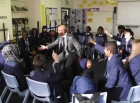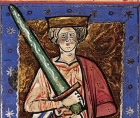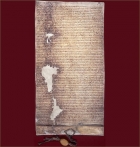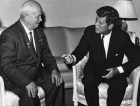Long-term knowledge plans
While the retention of historical knowledge is obviously important for students who face public examinations at the end of two or three year courses, the retention of different kinds of historical knowledge matters at all stages of young people’s education. Specific details that lend colour and interest to particular topics (and often play a vital role in explaining why events played out as they did) may well be forgotten; but teachers need to think carefully about the kind of ‘residue’ that they want to remain. What broader contextual knowledge will support the next specific study on which students are going to embark? What kind of summaries or essential reference points will help to anchor the over-arching framework that they are constructing? The materials in this section deal with ways in which teachers can plan in the longer-term, across whole key stages and across the whole-school curriculum, to support the retention, retrieval, re-use and refinement of students’ knowledge over time.
-

'Doing justice to history': the learning of African history in a North London secondary school
ArticleClick to view -

Adventures in assessment
ArticleClick to view -

Anything but brief: Year 8 students encounter the longue durée
ArticleClick to view -

Assessment after levels
ArticleClick to view -

Building and assessing historical knowledge on three scales
ArticleClick to view -

Cunning Plan 143: enquiries about the British empire
ArticleClick to view -

Cunning Plan 159: Putting the people into Magna Carta
ArticleClick to view -

Cunning Plan 162: Transferring knowledge from Key Stage 3 to 4
ArticleClick to view -

Developing transferable knowledge at A-level
ArticleClick to view -

Historical reasoning in the classroom
ArticleClick to view -

How my interest in what I don't teach has informed my teaching and enriched my students' learning
ArticleClick to view -

Knowledge and the Draft NC
ArticleClick to view -

Limited lessons from the Holocaust?
ArticleClick to view -

Managing the scope of study
ArticleClick to view -

Move Me On 167: Frames of reference
ArticleClick to view -

New, Novice or Nervous? 157: Teaching Overview
ArticleClick to view -

New, Novice or Nervous? 161: Teaching substantive concepts
ArticleClick to view -

New, Novice or Nervous? 162: GCSE Thematic Study
ArticleClick to view -

New, Novice or Nervous? 167: Confidence with substantive knowledge
ArticleClick to view -

Note-making, knowledge-building and critical thinking are the same thing
ArticleClick to view

